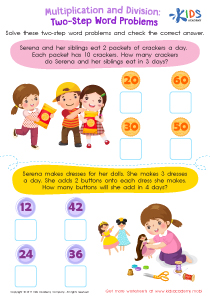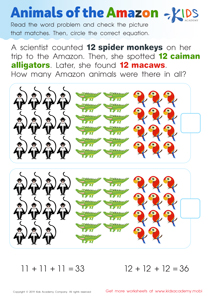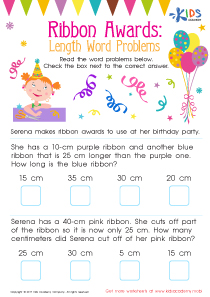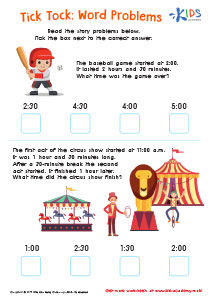Extra Challenge Addition and Subtraction Word Problems Worksheets for Ages 4-9
14 filtered results
-
From - To
Explore our "Extra Challenge Addition and Subtraction Word Problems Worksheets" designed specifically for children ages 4-9! These engaging worksheets are perfect for young learners seeking to enhance their math skills. Each scenario-based problem encourages critical thinking and problem-solving while reinforcing essential addition and subtraction concepts. Tailored for different skill levels, our worksheets provide a fun and interactive way to practice math at home or in the classroom. Help your child build confidence and fluency in mathematics with captivating word problems that spark curiosity and a love for learning. Start your adventure in math today with our extra challenge problems!
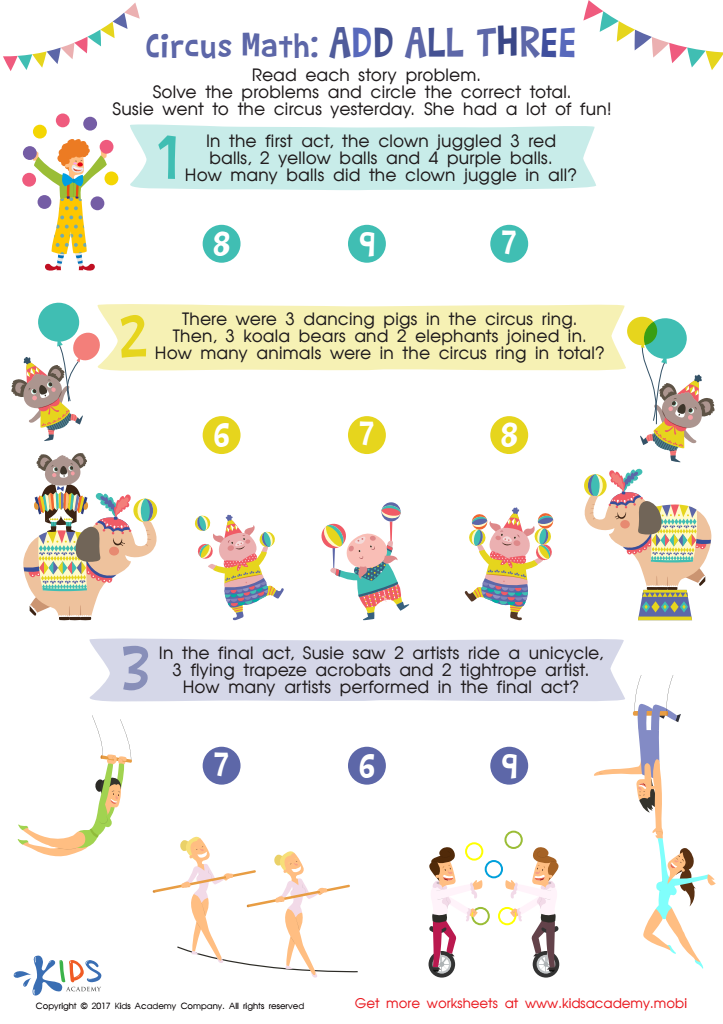

Circus Math Printable
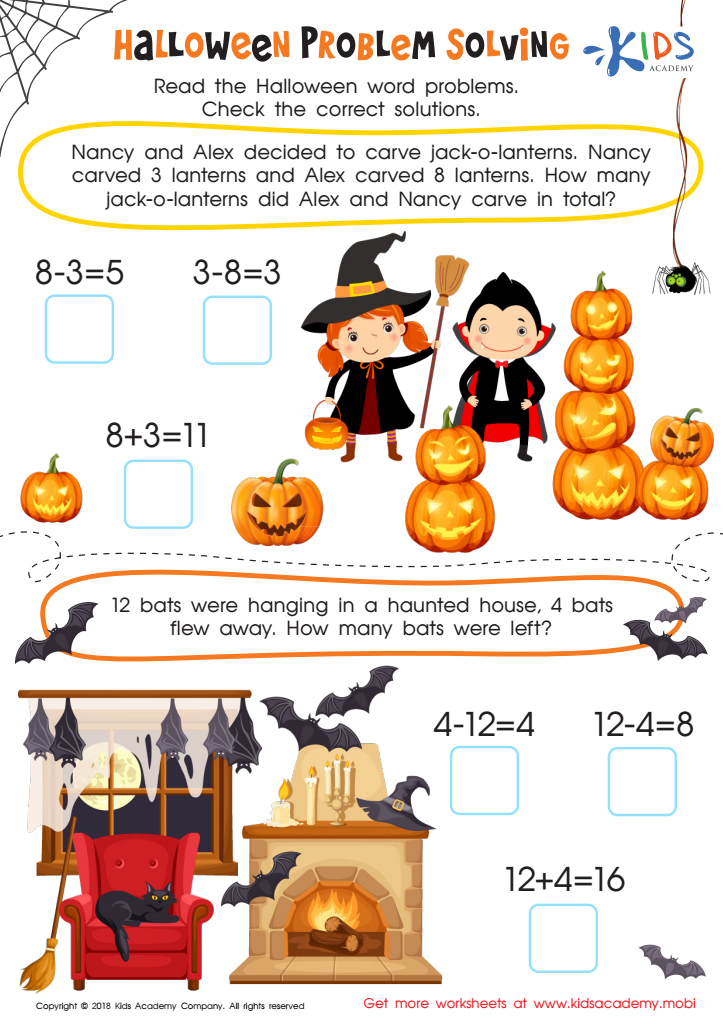

Halloween Problem Solving Worksheet
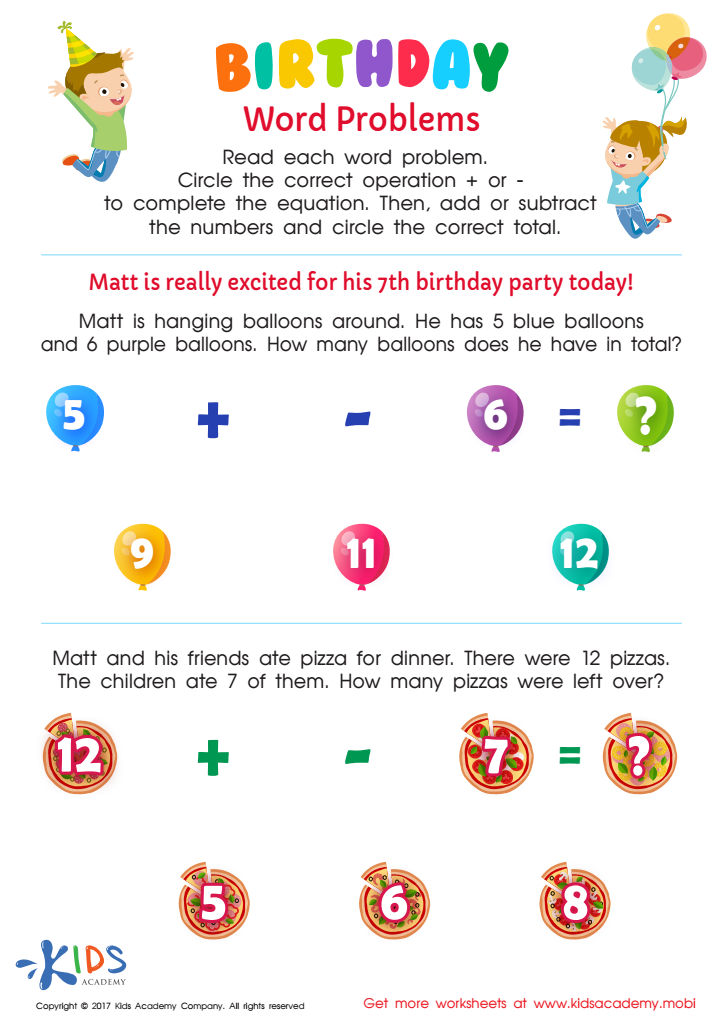

Birthday Word Problems Substraction Worksheet
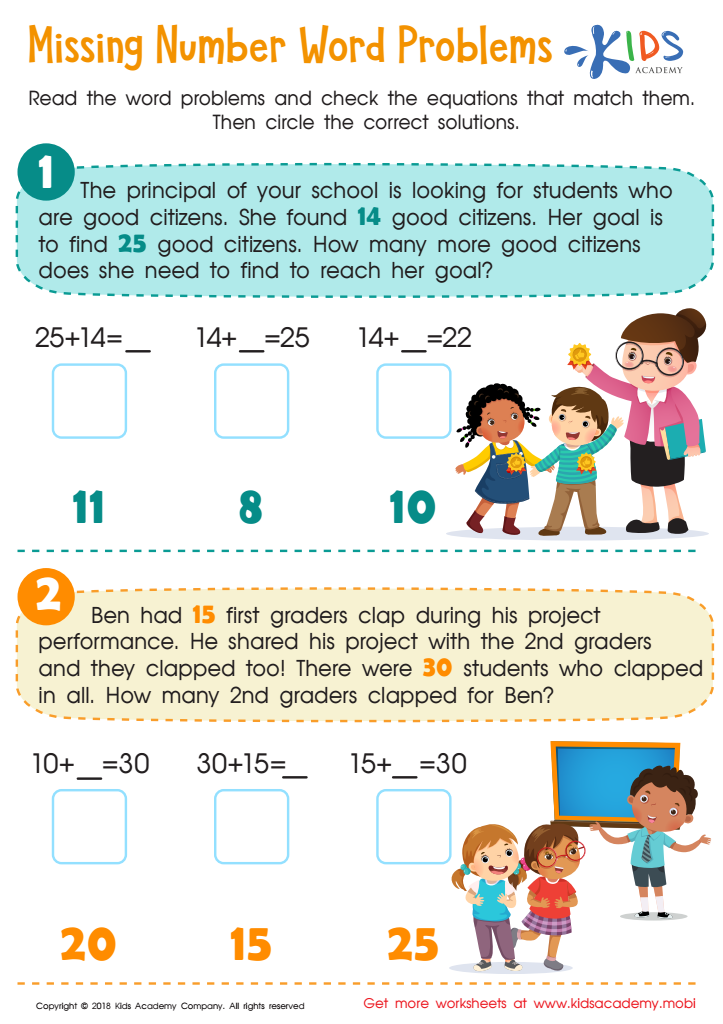

Missing Number Word Problems Worksheet
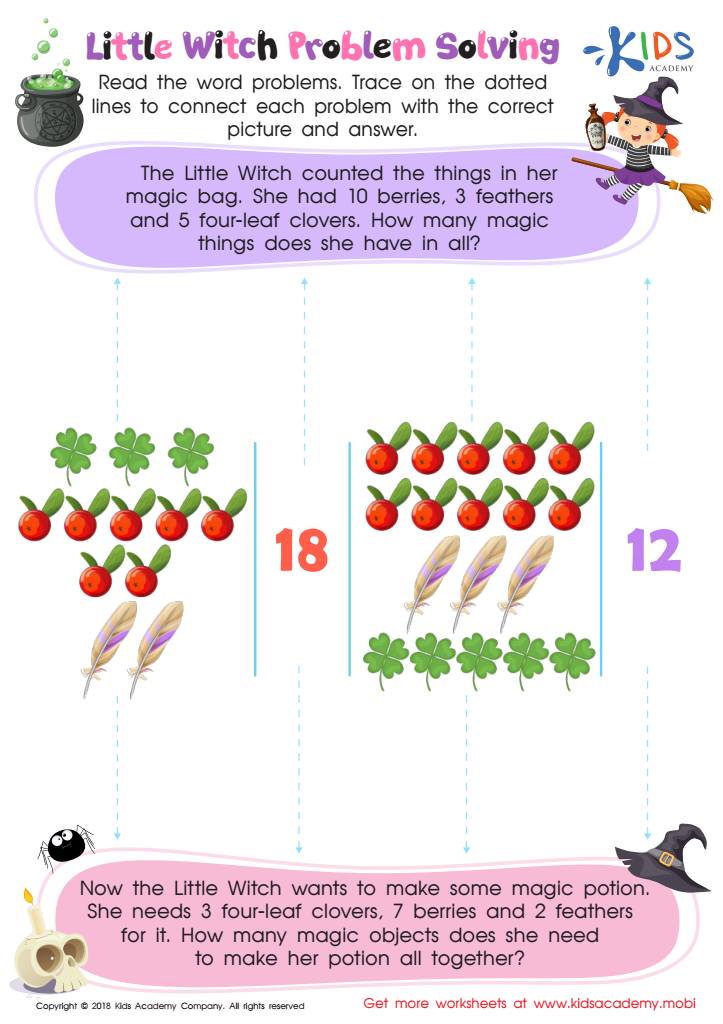

Little Witch Problem Solving Worksheet
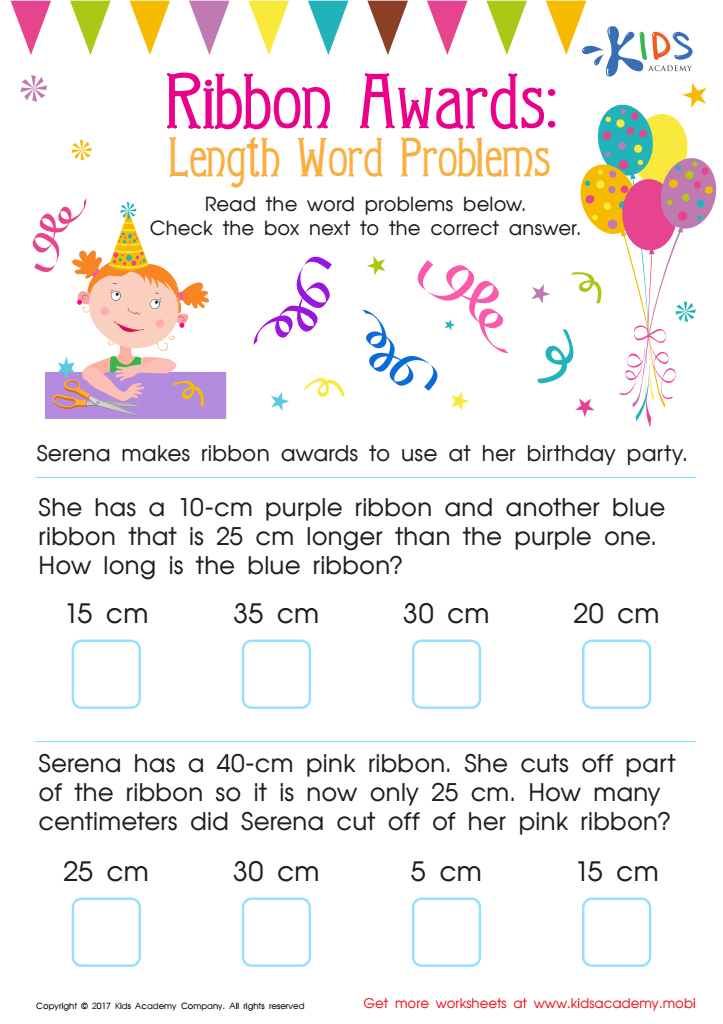

Length Word Problems Worksheet
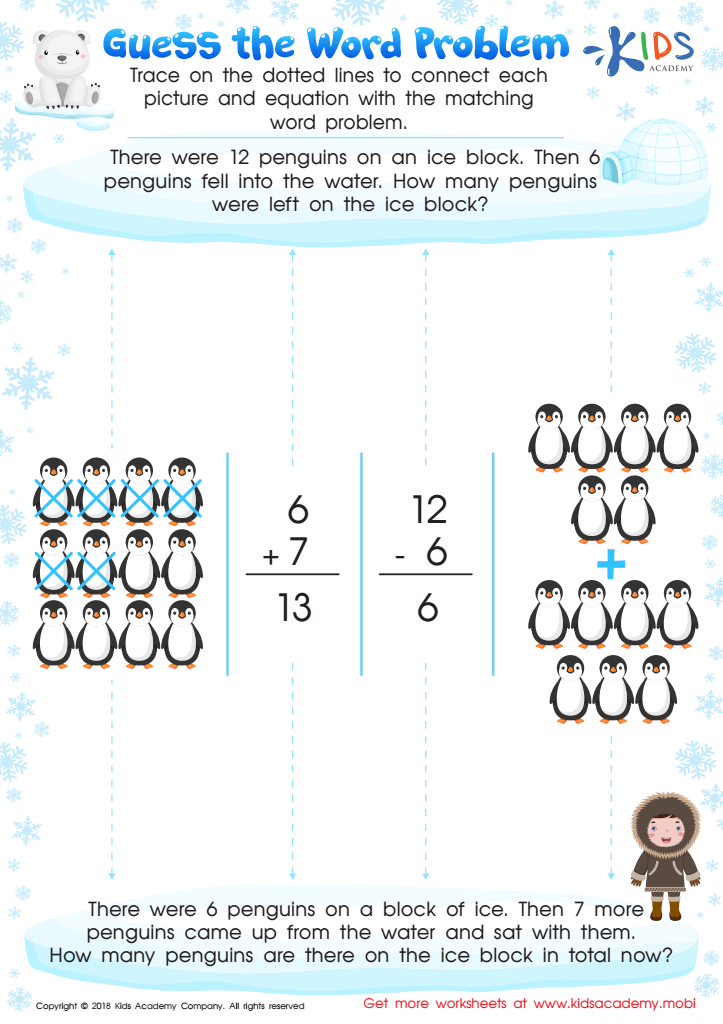

Guess the Word Problem Worksheet
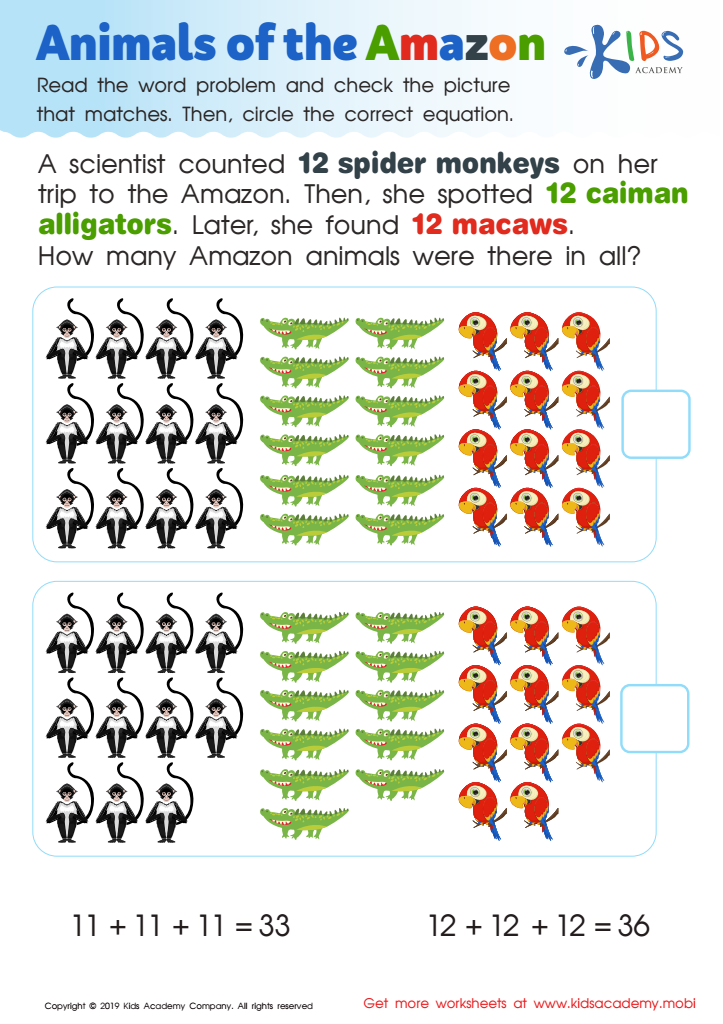

Animals of Amazon Worksheet
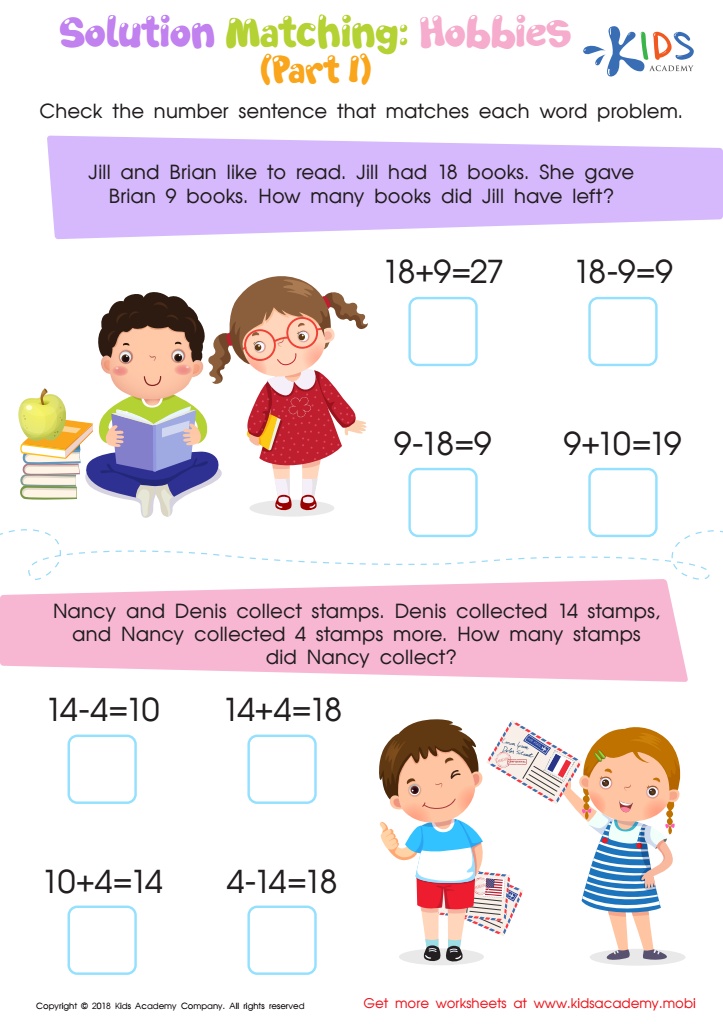

Solution Matching: Hobbies. Part 1 Worksheet
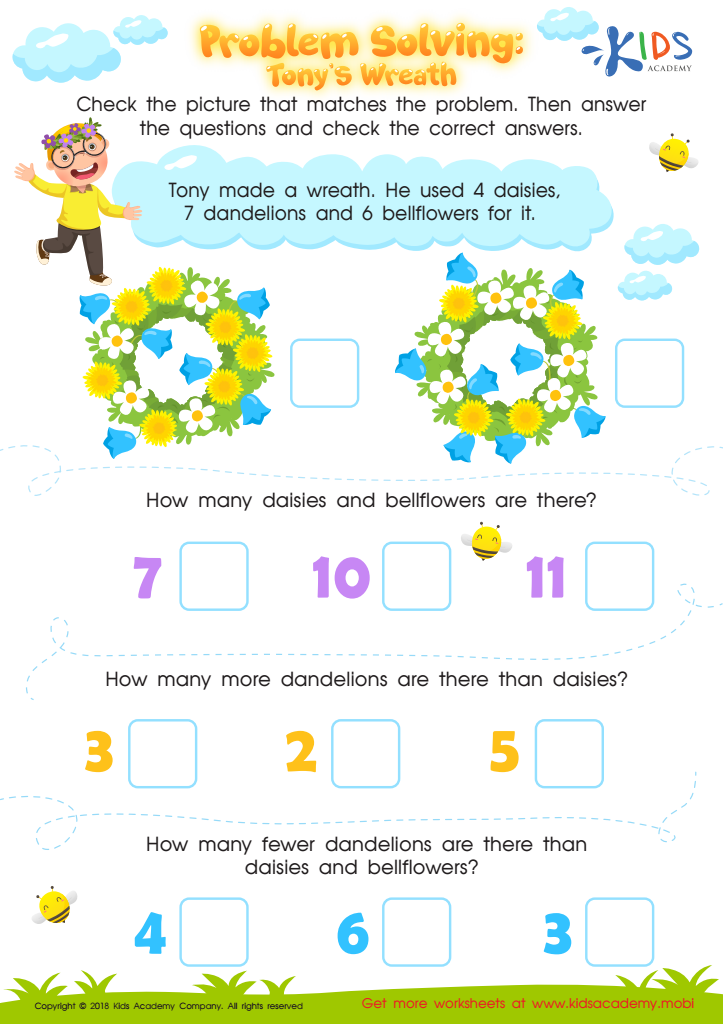

Problem Solving: Tony's Wreath Worksheet
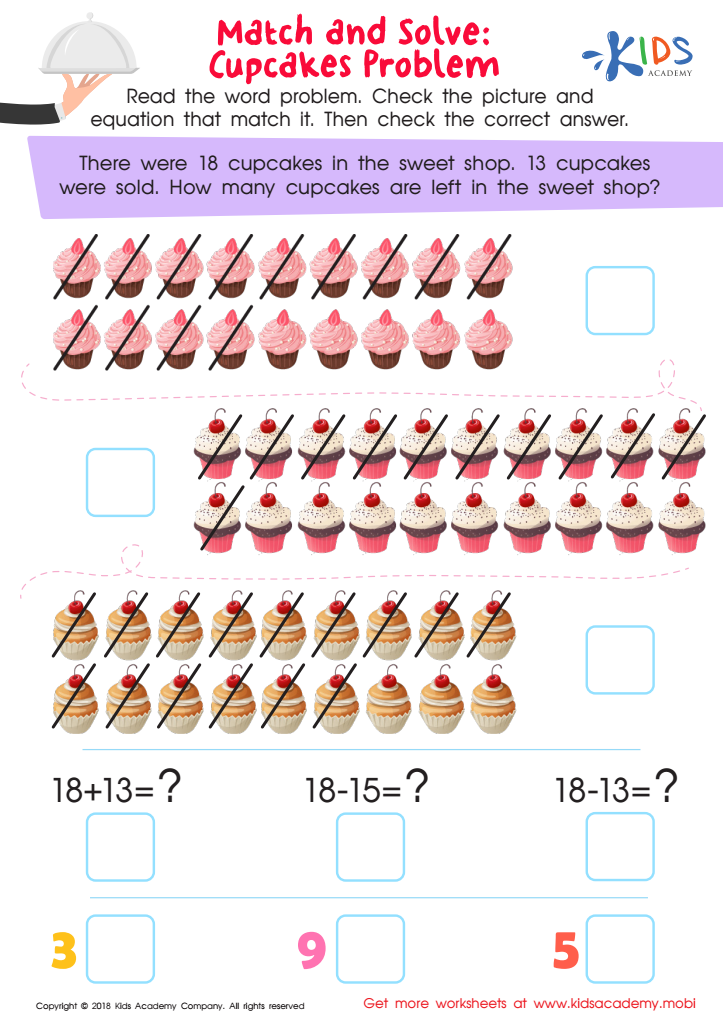

Match and Solve: Cupcakes Problem Worksheet
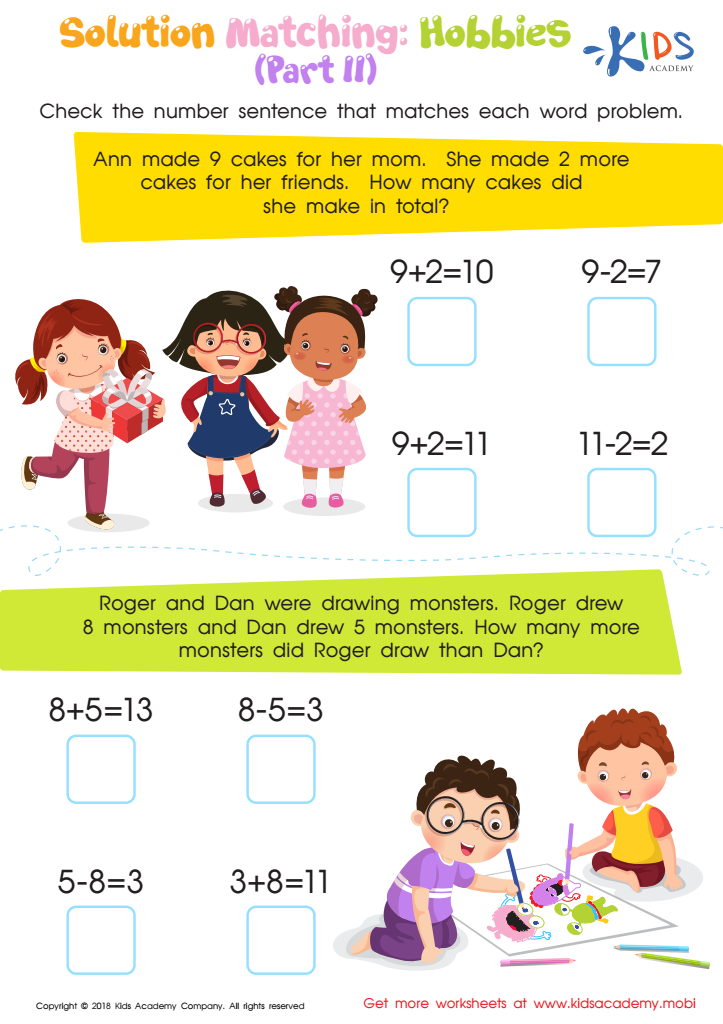

Solution Matching: Hobbies. Part 2 Worksheet
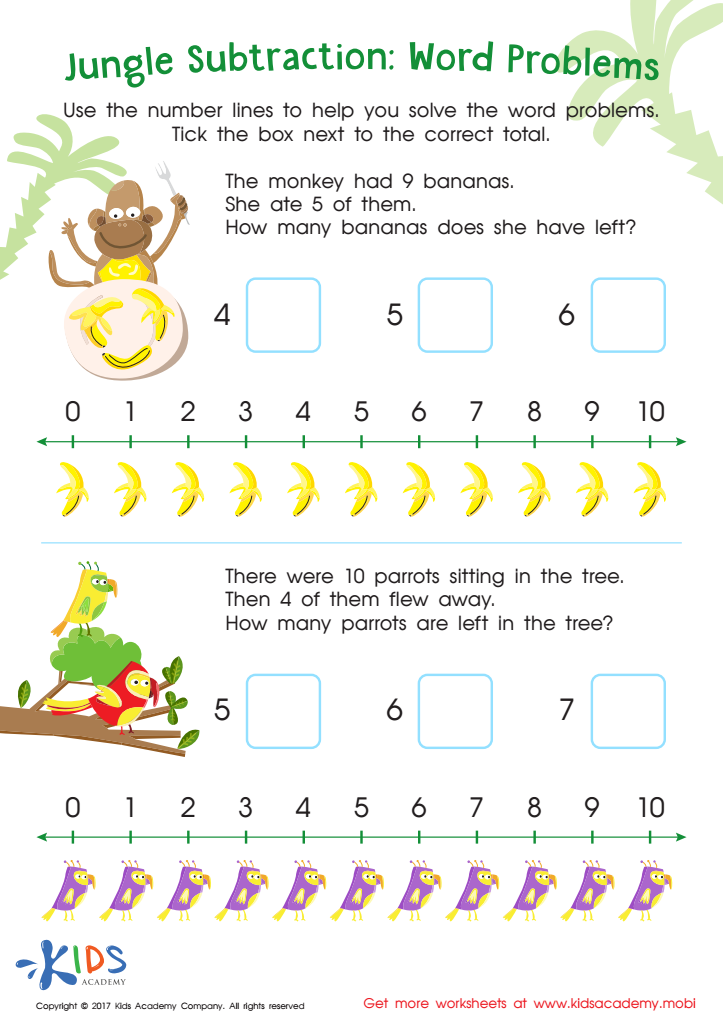

Jungle Subtraction Word Problems Substraction Worksheet
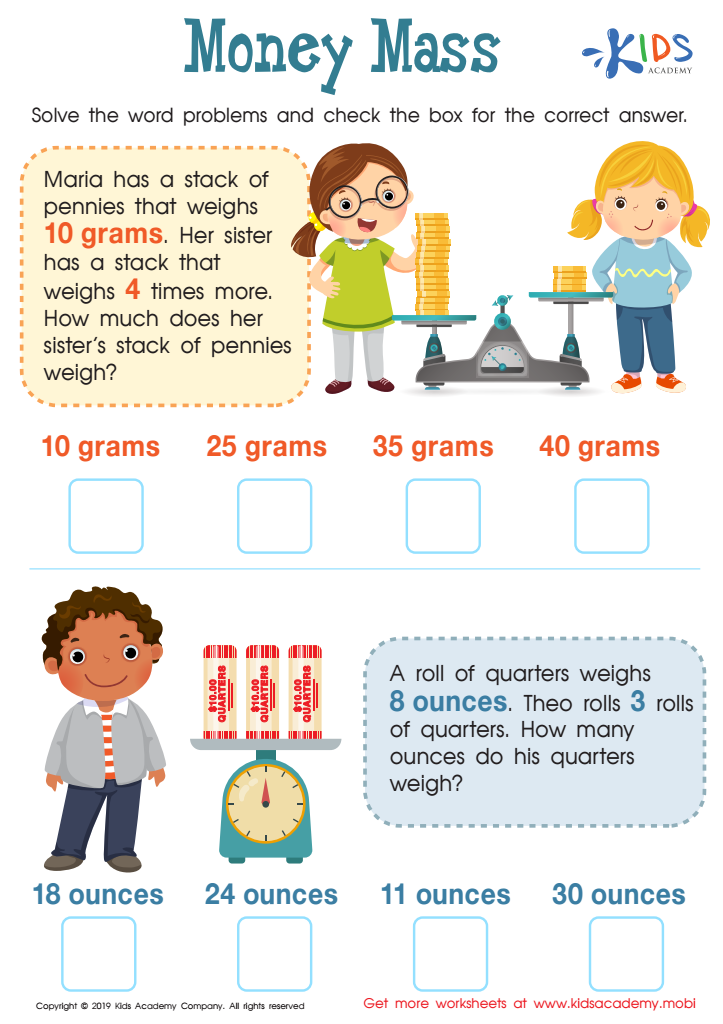

Money Mass Worksheet
Parents and teachers should care about Extra Challenge Addition and Subtraction Word Problems for children aged 4-9 because these problems play a crucial role in developing essential mathematical skills and critical thinking abilities. At this formative stage, children are not only learning to add and subtract but also to interpret and analyze problems presented in words, which enhances their literacy and comprehension skills.
Engaging with these challenges helps students apply their mathematical knowledge to real-world scenarios, fostering a deeper understanding of numbers and operations. By solving word problems, children learn to break down complex information, identify key components, and draw logical conclusions—skills that go beyond basic arithmetic and are essential for academic success in higher grades.
Moreover, these exercises promote resilience and problem-solving strategies, as students often encounter obstacles that necessitate persistence and creativity. Parents and teachers can use these problems to encourage a growth mindset, instilling the belief that with practice, students can improve and master challenging concepts.
Introducing Extra Challenge Word Problems sets a strong foundation for future math learning, preparing young learners to tackle more complex topics with confidence and competence. Thus, engaging in these activities is beneficial for holistic development and lifelong learning.
 Assign to My Students
Assign to My Students








